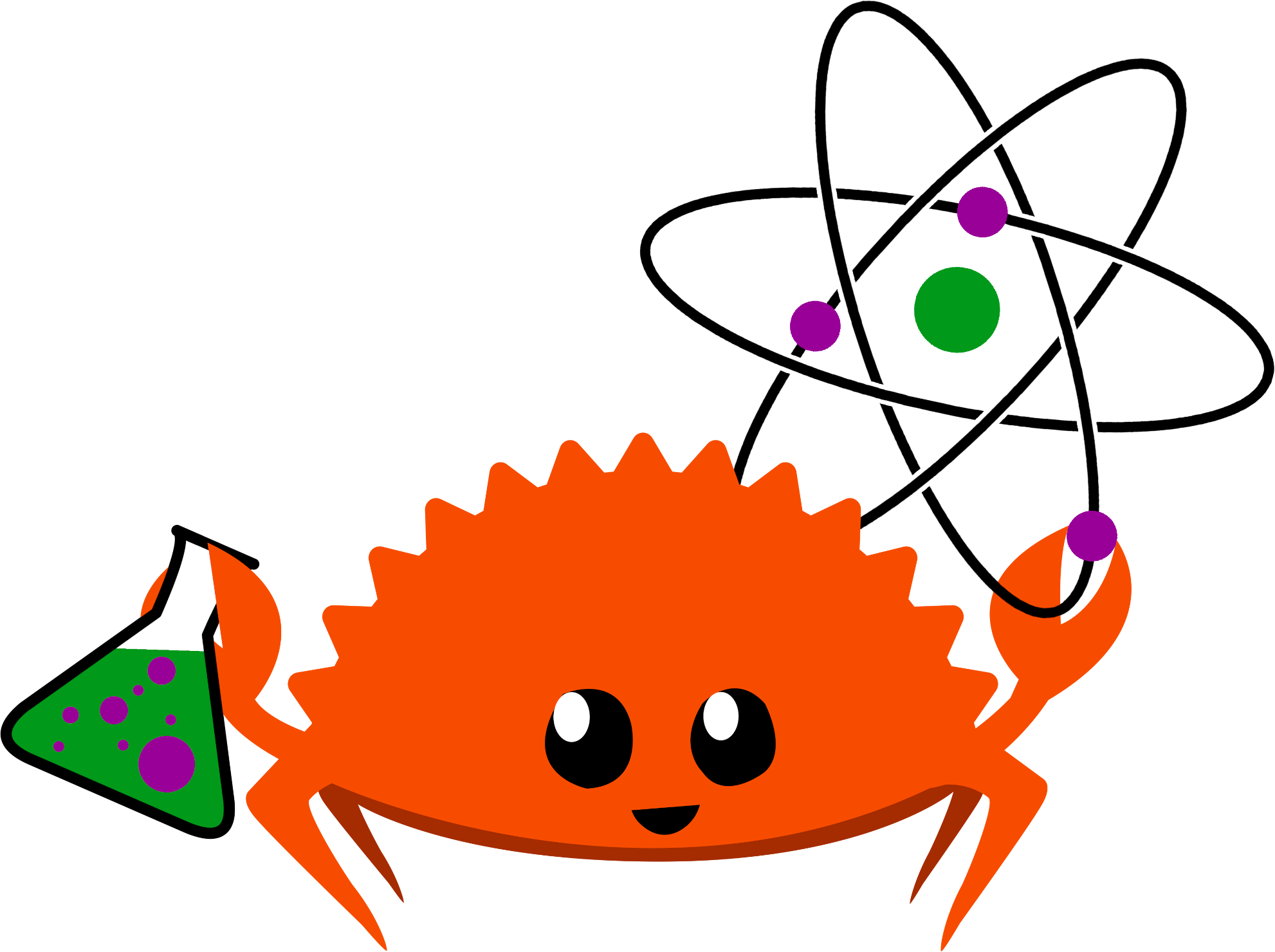Scientific Computing in Rust Monthly #7
Welcome to this month's issue of Scientific Computing in Rust Monthly.
Scientific Computing in Rust Monthly can be viewed online at scientificcomputing.rs/monthly, you can sign up to receive an email copy at mailinglist.scientificcomputing.rs, or you can subscribe using the RSS feed at scientificcomputing.rs/monthly/rss.xml.
Items can be added to the next issue of the newsletter by opening a pull request to the Scientific Computing in Rust Monthly repository on GitHub. You can find more information about adding items here.
Crate of the month: Polars
Polars is a DataFrame interface on top of an OLAP Query Engine implemented in Rust. It is very fast and lightweight. We recommend reading their getting started guide.
New releases
eVaiutilities v0.1.0
eVaiutilities is a library of data management utilities for eVai developed by Gaurav Sablok, Małgorzata Marcinkowska-Swojak, Sylwia Nawrocka, Paweł Wojciechowski, Luiza Handschuh (Institute of Bioorganic Chemistry, Polish Academy of Sciences). Human genomics has always been an intriguing and gleaming topic of interest. Many efforts have been laid for understanding and identifying variants. Apart from the open source genomics efforts, proprietary efforts have been developed for the identification and annotation of the variants. The identified variants have been classified and linked to the several levels of the disease ontology and the metabolism levels. One such effort is the eVai, which is a high throughput variant annotator, and provides the hierarchical classification of the genomic variants. However, the limitation of the eVai output files is the information spanning across the multiple files and the missing of the genome information and sub-sequence analysis on the annotated variants. eVaiutilities allows, you to use the output from the eVai and performs genome scale analysis of the eVai annotated variants. It allows you to search across populations, variants and spanning information across multiple samples. It is encoded in RUST and provides scalability.
Funded by ABM project: Development of a universal fast-response platform, based on RNA technology, ensuring the national drug and epidemiological safety. 2021/ABM/05/00004-00
Events
Scientific Computing in Rust, 4-6 June 2025, held virtually
The 2025 edition of the Scientific Computing in Rust virtual workshop will take place on 4-6 June 2025. Sessions will run between 13:00 and 17:00 BST each day. Registration is free and can be done at scientificcomputing.rs/2025/register.
The deadline for submitting 10 minute talks and interactive tutorials is less than a month away: Friday 2 May. If you'd like to tell people about a project you've been working on, or lead a more detailed session looking into the features of your project, we strongly encourage you to submit a session. You can do this by filling in one of the forms at scientificcomputing.rs/2025/submit-talk.
Publications
Christian Legnitto, Rust CUDA project update
An update on the Rust CUDA project, which has been rebooted after a few years being dormant.
Jobs
PhD positions, Postdoc positions, Software developers, and Fellowship-funded research stays, Aachen (Germany)
There is a new research group at the DWI - Leibniz Institute for Interactive Materials in Aachen and the Department of Physics at RWTH Aachen University (Germany). Its current research projects are
- Sound-propelled microrobots
- Ultrasound-controlled 3D-bioprinting
- Computational fluid dynamics simulations
- Acoustofluidics
- Microfluidics
- Light-propelled microparticles
- Intelligent matter and artificial neural networks
There will be opportunities for
- PhD positions
- Postdoc positions
- Fellowship-funded research stays
- Scientists and software developers
The group is mainly looking for researchers who are talented and experienced in
- Computer simulations
- Programming
- Software development
In recent years, the group has used Rust extensively to create new high-performance simulation software (see for example this talk at the last SciComp Rust workshop).
If you are interested in one of these research projects and would like to work in this group, please have a look at the group's webpage and follow the instructions mentioned there for applying for writing a thesis in the group or for applying for a position in the group.
